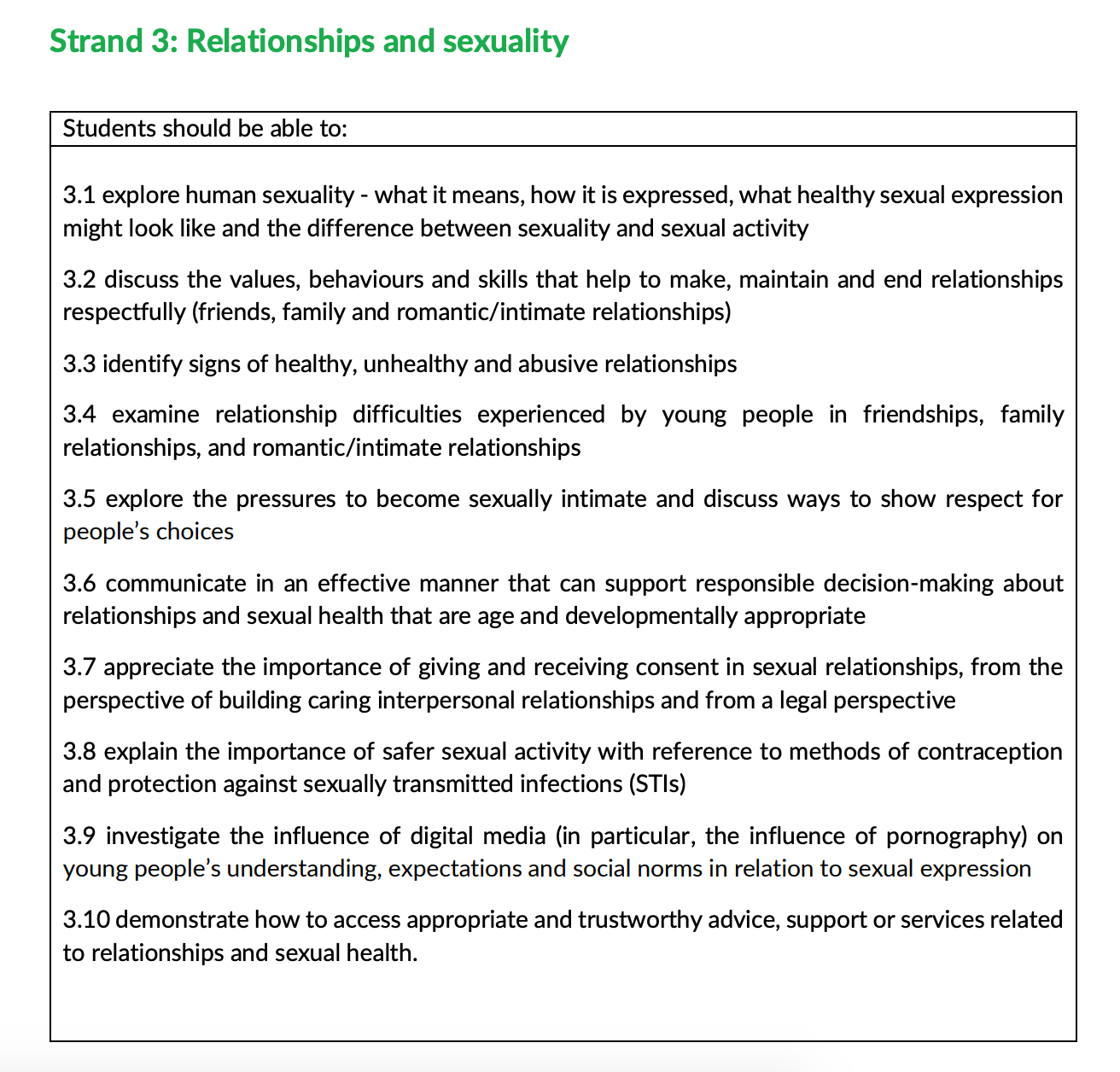

Share
18th July 2022
05:49pm BST

 Image via National Council for Curriculum and Assessment[/caption]
Sounds reasonable enough, and not too far removed from a recent, in-depth conversation JOE had with Richie Sadlier on the matter of consent education in Ireland, especially where young Irish men are concerned.
Responding to the NCCA's consultation, the Dublin Rape Crisis Centre (DRCC) welcomed the move, describing it as "a significant step forward" for young people availing of education in Ireland.
Image via National Council for Curriculum and Assessment[/caption]
Sounds reasonable enough, and not too far removed from a recent, in-depth conversation JOE had with Richie Sadlier on the matter of consent education in Ireland, especially where young Irish men are concerned.
Responding to the NCCA's consultation, the Dublin Rape Crisis Centre (DRCC) welcomed the move, describing it as "a significant step forward" for young people availing of education in Ireland.
"It is a reality that children and young people are online, they are encountering a wide range of information, including mis-information," said DRCC CEO Noeline Blackwell.
"Their digital access means that they can find and are often targeted for pornography and abuse of intimate images. It is also a reality that this is not being addressed widely in schools. If children and young people are not given the tools and the language to deal with these issues, they will not be able to navigate them appropriately and may be harmed or cause harm.
"We need to resource them to develop skills to manage themselves and their interactions with others in a safe, healthy way. A fuller understanding of consent, based on open communication, equality and consideration for others, will build empathy in young people and contribute to healthier relationships."
You can peruse the NCCA document, should you wish, right here.Explore more on these topics: